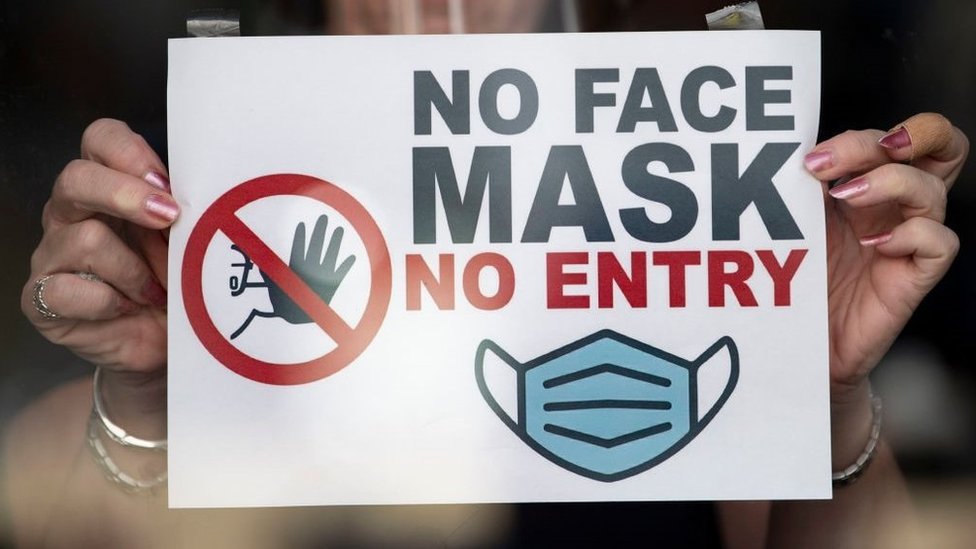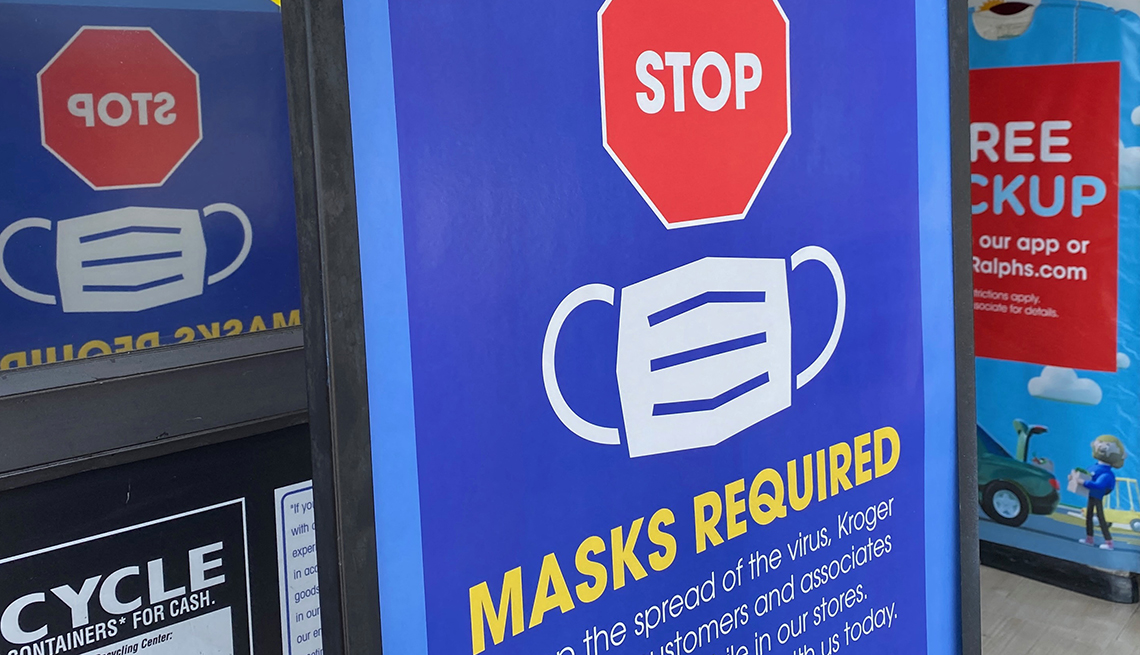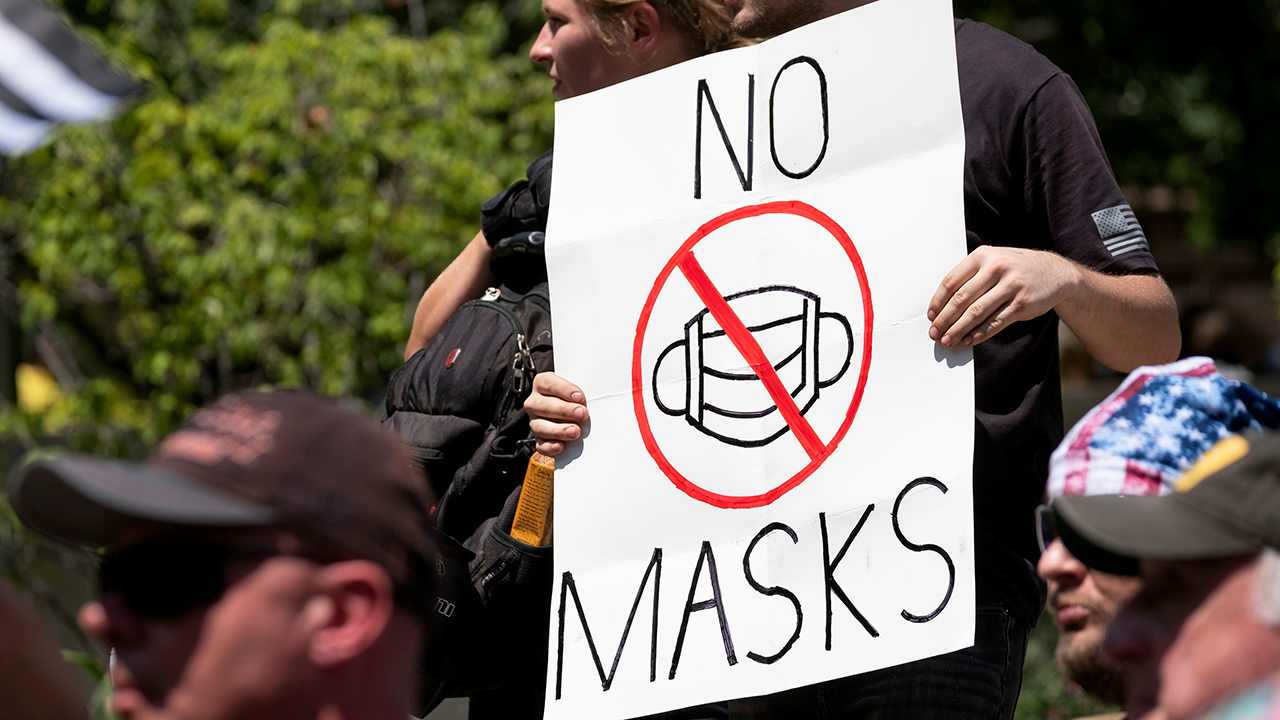The Nassau County Mask Mandate: Nassau County Ban Masks

The Nassau County mask mandate was a public health measure implemented during the COVID-19 pandemic to help curb the spread of the virus. It required individuals to wear face coverings in certain public settings.
Timeline of the Nassau County Mask Mandate
The Nassau County mask mandate was implemented in stages, evolving as the pandemic progressed and scientific understanding of the virus grew.
- April 2020: Nassau County Executive Laura Curran issued an executive order requiring face coverings in public places, including stores, businesses, and public transportation, becoming one of the first counties in New York to do so. This initial mandate aimed to slow the spread of the virus during the early stages of the pandemic, when knowledge about the virus was still evolving.
- May 2020: The mandate was amended to clarify that masks were required in all indoor public settings, including workplaces, and outdoors when social distancing was not possible.
- June 2020: The mandate was further refined, exempting certain activities like outdoor dining and exercising.
- February 2021: With increasing vaccination rates and declining COVID-19 cases, the county began lifting restrictions, including the mask mandate for vaccinated individuals in most indoor settings.
- May 2021: The county fully lifted the mask mandate for all individuals, both vaccinated and unvaccinated, in most indoor settings, aligning with state guidelines.
Rationale for the Mask Mandate
The Nassau County mask mandate was implemented based on scientific evidence and public health recommendations.
- Transmission through respiratory droplets: Scientific studies confirmed that COVID-19 spreads primarily through respiratory droplets released when an infected person coughs, sneezes, talks, or breathes. Masks effectively reduce the spread of these droplets, minimizing the risk of transmission.
- Asymptomatic transmission: It was discovered that individuals could be infected with COVID-19 and spread the virus without showing symptoms. Mask mandates aimed to reduce transmission by asymptomatic individuals, who might not know they are infected.
- Protection of vulnerable populations: Masks offered protection for individuals at higher risk of severe COVID-19, such as older adults and people with underlying health conditions.
Public Reaction to the Mask Mandate
The mask mandate generated mixed reactions from the public, with some individuals supporting the measure and others opposing it.
- Support: Many individuals supported the mask mandate, viewing it as a necessary public health measure to protect themselves and others from the virus. They believed that wearing masks was a small inconvenience compared to the potential benefits of reducing transmission and protecting vulnerable populations.
- Opposition: Some individuals opposed the mask mandate, citing concerns about personal freedom, discomfort, and the effectiveness of masks. They argued that the mandate was an overreach of government authority and that it infringed on individual liberties. Some also expressed skepticism about the scientific evidence supporting the effectiveness of masks.
Legal and Political Aspects of the Ban

The Nassau County mask ban, like other similar policies, has sparked legal and political debate. Understanding the legal framework surrounding mask mandates and the political landscape surrounding the ban is crucial to comprehending its implications.
Legal Framework of Mask Mandates
The legal basis for mask mandates in the United States rests on the concept of police powers, which allow states to enact laws and regulations to protect public health and safety. The Tenth Amendment of the U.S. Constitution reserves powers not delegated to the federal government to the states.
The Centers for Disease Control and Prevention (CDC) has issued guidance recommending mask use in public settings, but these recommendations are not legally binding. States and localities have the authority to implement their own mask mandates based on their specific public health needs.
Legal Challenges to the Nassau County Mask Ban, Nassau county ban masks
The Nassau County mask ban has faced legal challenges from individuals and organizations who believe it violates their rights. These challenges often argue that the ban infringes on individual liberty or that it lacks a sufficient scientific basis.
The outcomes of these legal challenges vary depending on the specific arguments raised and the rulings of the courts. Some challenges have been successful in halting or modifying mask mandates, while others have been unsuccessful.
Political Landscape of the Mask Ban
The political landscape surrounding the Nassau County mask ban is complex and reflects broader societal divisions on issues related to public health, individual liberty, and government authority.
Elected officials have taken varying positions on the ban, with some supporting it as a necessary measure to protect public health and others opposing it as an infringement on individual rights. Political parties have also taken different stances, with some emphasizing the importance of individual freedom and others prioritizing public health. Interest groups, such as businesses, healthcare providers, and civil liberties organizations, have also weighed in on the debate, advocating for policies that align with their respective interests.
The political debate surrounding mask mandates often centers on the balance between individual rights and public health. Proponents of mask mandates argue that they are a necessary measure to protect the health of the community, while opponents argue that they infringe on individual liberty and are not supported by sufficient scientific evidence.
Impact and Implications of the Mask Ban

The Nassau County mask ban, while intended to promote personal freedom, carries potential consequences that extend beyond individual choices. It is crucial to analyze the various implications of this policy, considering its impact on public health, the economy, and society as a whole.
Public Health Implications
The decision to ban masks has raised concerns about the potential for increased transmission of COVID-19 and other respiratory illnesses. While some argue that masks are ineffective or even harmful, a substantial body of scientific evidence supports their use in reducing the spread of respiratory droplets. The ban could lead to an increase in cases, hospitalizations, and potentially even deaths, particularly among vulnerable populations.
The CDC recommends wearing masks in public indoor settings, especially for unvaccinated individuals, to help prevent the spread of COVID-19.
This policy may also hinder efforts to control the spread of other respiratory illnesses, such as influenza and the common cold, which can be particularly impactful during the winter months.
Economic Implications
The mask ban could have both positive and negative economic implications. Proponents argue that it could boost business activity by reducing perceived inconveniences and fostering a sense of normalcy. However, there is also a risk that the ban could discourage customers from patronizing businesses, especially those who are concerned about their health and safety. This could lead to decreased revenue and potentially even job losses, particularly in sectors heavily reliant on public interaction.
The National Retail Federation has expressed concern that mask mandates can deter some customers from shopping, potentially impacting retail sales.
The ban could also complicate efforts to attract tourists and visitors, especially those who are risk-averse or from regions with stricter COVID-19 protocols.
Social and Cultural Implications
The mask ban has sparked a debate about individual freedoms, community cohesion, and public trust. While some view the ban as a victory for personal autonomy, others argue that it undermines the collective responsibility to protect vulnerable individuals and contributes to a sense of division within society. The ban could also erode public trust in local authorities, particularly if it is perceived as being driven by political motivations rather than scientific evidence.
The mask ban has been met with mixed reactions, with some expressing support for individual freedom and others raising concerns about the potential for increased COVID-19 transmission.
The decision to ban masks also raises questions about the role of government in public health and the balance between individual rights and the collective good.
Nassau county ban masks – The Nassau County mask ban has sparked debate, with some arguing for individual choice while others prioritize public health. Amidst this discussion, it’s important to consider the impact on families, particularly those with young children. For parents seeking to create a safe and engaging play space, a Lipper International kids table and chair provides a dedicated area for creativity and learning, even in the context of evolving health guidelines.
The Nassau County mask ban, therefore, necessitates a multi-faceted approach that considers the needs of all community members, including families seeking to foster healthy play and development in their children.
The Nassau County mask ban sparked controversy, mirroring the fervor surrounding collectible items like the McDonald’s collectors meal , which ignited a frenzy among collectors. While the latter represented a nostalgic desire for bygone eras, the former reflected a more pressing concern regarding public health and individual liberty, raising questions about the role of government intervention in personal choices.
